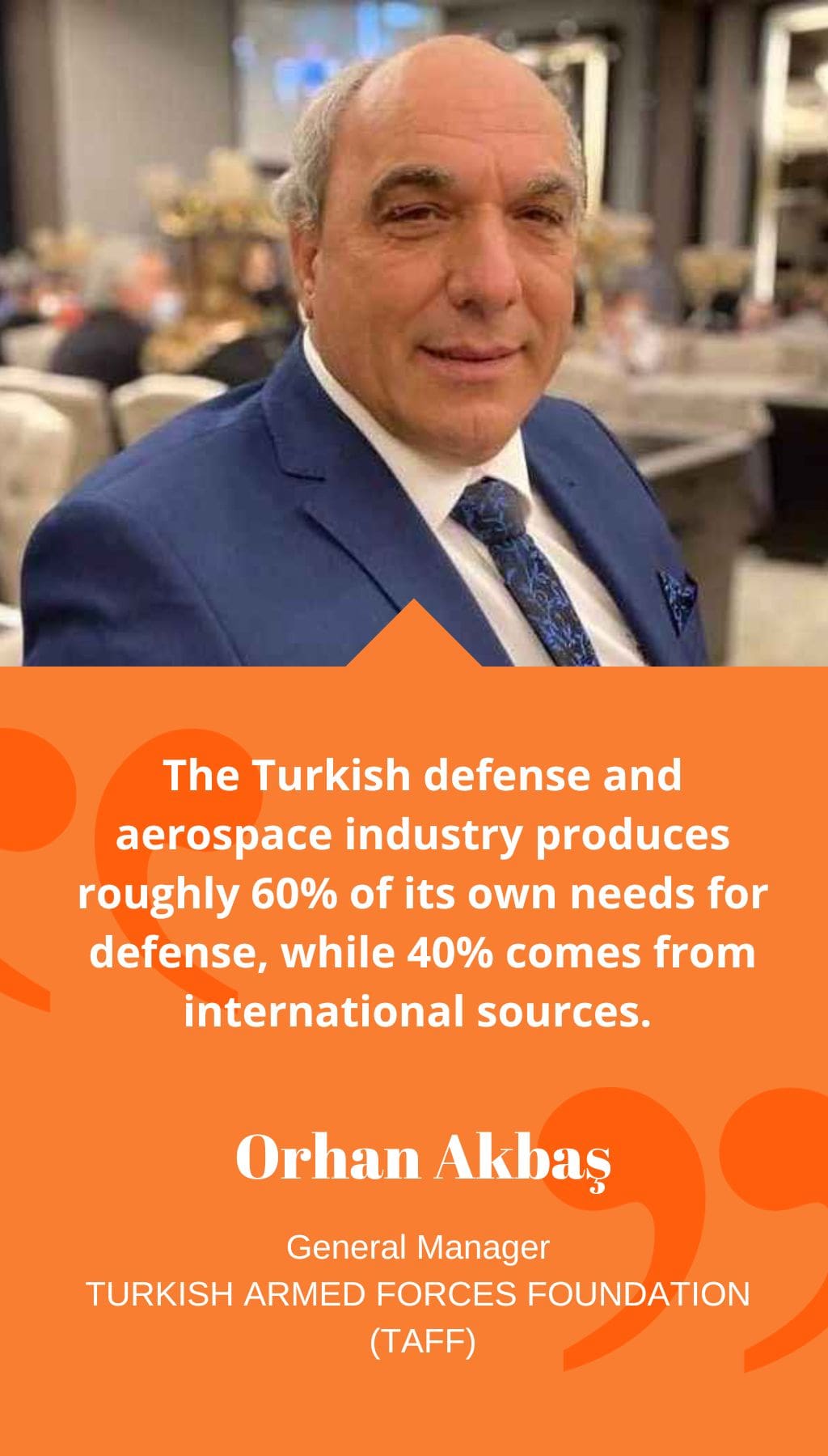
- Turkey | 17 February 2017

Could you please provide an overview of the Turkish Armed Forces Foundation and its role in the defense industry?
The Turkish Armed Forces Foundation (TAFF) is a non-governmental organization that was established in 1987 by integrating the Turkish Land, Naval, and Air Forces Support Foundations. The main objective of the foundation is to enhance the defense capability of the Turkish Armed Forces through the development of projects in new defense-industry fields and through the procurement of equipment using the financial and moral support of Turkish citizens. The foundation works as a group of companies, six of which are subsidiaries, and eight of which are affiliates. Aselsan specializes in defense electronics, TAI is a leading company in aeronautics, Roketsan develops missile and rocket systems, and Havelsan focuses on command and control systems and other defense software.
The history of TAFF goes back to the 1960s and 1970s, when Turkish-made military equipment became a national priority after the 1964 Cyprus crisis. The embargo on military exports to Turkey following the Cyprus Peace Operation by the United States and other allies accentuated this need. The overreliance on foreign equipment showed a key strategic gap, leading Turkey to consider developing an independent defense industry. As a result, Turkish Land, Naval and Air Forces Support Foundations were formed with the donations of Turkish people, which established companies for the production of defense equipment.
What is the R&D environment like for Turkish Armed Forces Foundation companies?
Research and innovation is a primary focus for TAFF, and roughly 7% of their yearly income is allocated for research and development. Aselsan, TAI, Roketsan, and Havelsan have a total of four facilities in technology development zones and ten R&D centers, where they employ a total of 4,890 R&D engineers. Moreover, Aselsan, TAI, and Roketsan were chosen as the best R&D centers by the Ministry of Science, Industry, and Technology in 2013. TAFF’s vision is to establish five research and development centers in Ankara and another 15 smaller centers within their companies.
TAFF group companies accounted for 52% of all R&D expenditure in the industry in 2014. TAFF currently monitors and keeps tabs on the R&D projects of its subsidiaries. The foundation recently improved its innovation and R&D organization by establishing a new section responsible for following global technological advances, preventing redundancies between TAFF’s subsidiaries, and providing coordination with institutions such as Turkish General Staff, TUBITAK, and universities.
What is the strategic vision for the future of Turkish Armed Forces Foundation?
TAFF has a five-year strategic plan to create a systematic approach for the future, manage its subsidiaries by setting objectives and evaluating their performance, and promote cooperation as the leader of TAFF group companies. The Turkish defense and aerospace industry produces roughly 60% of its own needs for defense, while 40% comes from international sources. TAFF aims to improve the share of local production within the next five years, including supporting Roketsan and Havelsan, so that they can become one of the top 100 global companies like Aselsan and TAI.
Part of the strategic focus is on aerospace, command and control systems, and simulators. There are also several exciting projects under development, particularly the helicopter and fighter jet projects, which will extend for the next 10 to 15 years. Energy efficiency and production will be another major focus, especially to meet the needs of the Turkish Armed Forces. The industry is growing, and the foundation plans to expand current export levels of around $1 billion to $5 billion.














